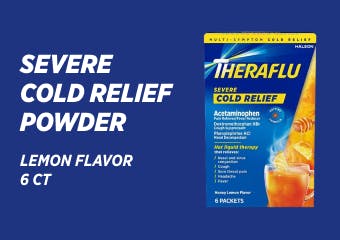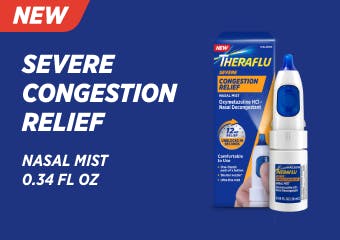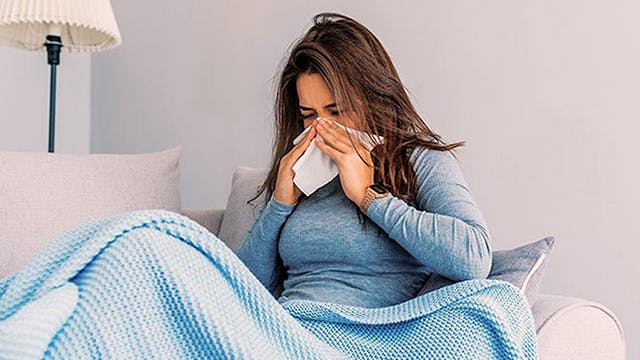What to Drink When You Have the Cold or Flu
Dehydration occurs when your body loses more fluid than you’re able to take in, and your body isn’t getting enough water or fluids to carry out its normal functions.1 Some common symptoms of dehydration include dizziness, fatigue, confusion, and less frequent urination.1
There are a number of ways you can help prevent dehydration, especially if you have the cold or flu. One of the many things you can do to help yourself stay hydrated when sick is “drinking things like water, juice, or electrolyte-containing fluids will help you replace the fluids and electrolytes you’ve lost while also loosening mucus — if you have a cold — and helping to relieve congestion,” says Dr. Dass. Water is one of the best fluids to consume to help you to stay hydrated when you’re sick. The reason for this is that water doesn’t contain any calories, sugar, or preservatives, which are things that can cause dehydration.2
Don’t discount the power of a decaf or warm beverage that’s low in caffeine. “Hot liquids may feel more soothing on the throat than cold liquids,” Dass says.
“The bonus is that the steam from the hot liquids may help relieve some congestion, too.” Try brewing a hot cup of green or chamomile tea, or, if you’re experiencing flu-like symptoms, brew up a Theraflu Multi-Symptom Severe Cold Hot Liquid Powder, which houses powerful medicine to give you cold and flu symptom relief that you can feel fast. Available in individual packets, hot liquid powders are easy to make at home or work and can help you start feeling better fast no matter where you are.

Don’t discount the power of a decaf or warm beverage that’s low in caffeine. “Hot liquids may feel more soothing on the throat than cold liquids,” Dass says.
Avoid These Liquids When Dehydrated
You may be wondering if drinking coffee when you’re sick or other beverages, like alcohol, is ok. Dr. Dass says it is “best to avoid drinks that act as diuretics because these will dehydrate you.” “Caffeinated beverages such as coffee, tea, and soda pop and alcohol are leading culprits.” Also, liquids like coffee, tea, and alcohol can cause you to urinate more, which makes you lose water at a faster than normal rate.2
Of course, the rules are different when talking about chronic illnesses or children with gastrointestinal illness, in which cases it’s best to consult with a personal doctor or medical professional. Most adults need about two quarts of fluids every day, which is about 6 to 8 glasses of fluid.2
When you’re sick, however, staying hydrated is even more important since you’re losing more water in your body than normal. There are a number of foods that can help you when you’re sick with the cold or flu. If you have an appetite while sick or are considering trying something to eat, fruits and vegetables that are high in water may be a good option.2 Grapes, oranges, apples, and celery are just a few of the many options you can snack on as a way to help with dehydration, as these foods contain high amounts of water.2
Feeling under the weather is never fun. However with these ideas on how to stay hydrated when sick, you’ll hopefully be back on your feet soon enough. If the symptoms of the cold or flu get worse and you notice more extreme dehydration, then it’s best to contact your doctor for more immediate care.





